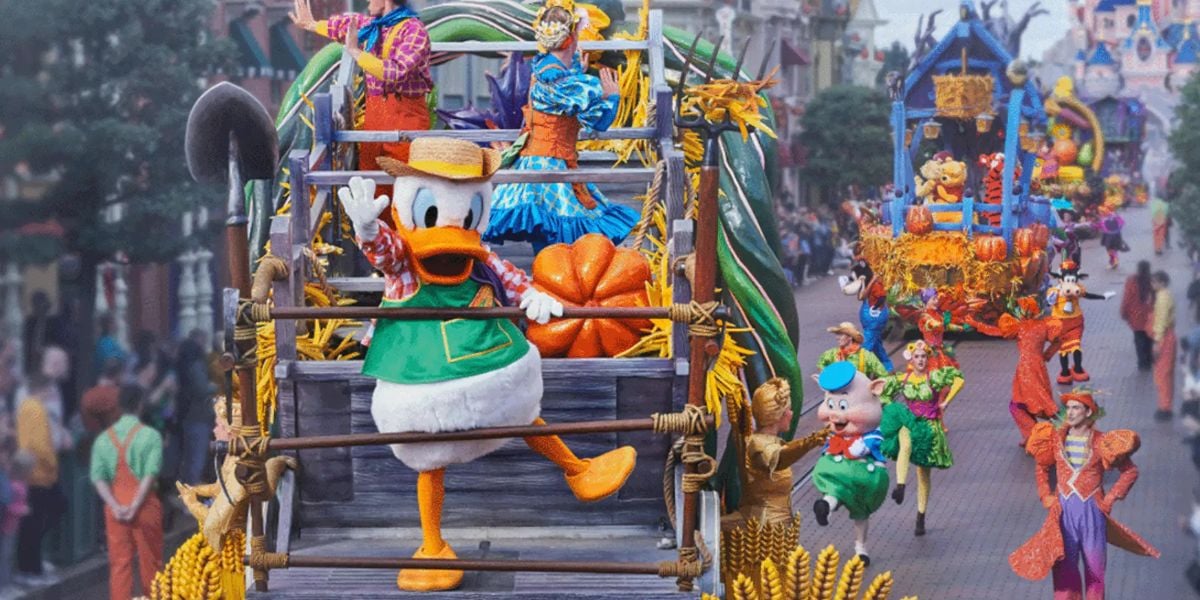Disneyland Paris is cracking down.

In a recent notice spotted in the parks and shared on social media by ED92, Disneyland Paris issued a pointed reminder to guests regarding ticketing policies. The sign, which has stirred discussion among Disney fans online, reads:
“Park admission tickets are nominative and may be subject to verification at any time. Reselling and/or purchasing from unauthorized sellers, as well as entering without a valid ticket, constitutes fraud.”
This important note was also seen today ✨
Take a look 👀 pic.twitter.com/jicDHqY0Mz
— ED92 (@ED92Magic) October 20, 2025
While straightforward in its language, the statement hints at growing tensions between Disney and its guests over the future of park access and ticketing practices. Coming amidst a broader push toward digital-only ticketing, this warning highlights a clear effort by Disneyland Paris to crack down on ticket resales and fraudulent entries—an issue made more complex by the resort’s transition away from physical passes.
A Push for Digital: The Disappearance of the Magic Pass

For years, Disneyland Paris guests staying at on-site hotels received a Magic Pass — a physical card that doubled as a room key, park ticket, and even a payment method in some cases. Many guests cherished these passes as collectible souvenirs, adding to the tangible magic of their Disney vacation.
But those days may be numbered.
According to multiple reports from guests on Reddit and other platforms, the resort is phasing out Magic Passes entirely. Upon check-in, visitors are now increasingly being issued only a single physical room key per party, with theme park access tied to QR codes delivered digitally through the Disneyland Paris app.
The change seems particularly enforced at value resorts like Disney’s Hotel Santa Fe, where staff have been telling guests that physical Magic Passes are no longer distributed.
“Apparently you can’t get individual magic passes anymore,” one Reddit user wrote. “You only get one card for your party as a room key, and you have to use the tickets on your phone to enter the park.”
This shift has prompted a wave of guest frustration, particularly among those who either prefer physical tickets or find the mobile experience unreliable. One common complaint is the inconsistency and sluggishness of the Disneyland Paris app, which many say takes too long to load — causing bottlenecks at park entry points.
“It’s painful watching people try [to] scan in with their phones,” one guest commented.
Others echoed concerns about accessibility, pointing out that not all guests are comfortable with smartphones, nor should they be expected to rely solely on them during a full day at the parks.
“It’s to assume that everyone just has a smartphone or knows how to use one. I hope you can still get the physical cards if you absolutely need them,” another visitor said.
Digital-First, But At What Cost?

The transition to digital tickets is part of a broader global trend across Disney resorts. In the U.S., Walt Disney World guests now unlock hotel room doors and enter theme parks using the My Disney Experience app or smart devices like Apple Watches. MagicBands, once handed out for free to Disney World hotel guests, are now sold separately — with even discounted versions recently discontinued.
Tokyo Disney Resort, too, has leaned heavily into app-based experiences while simultaneously limiting attendance, frustrating guests who remember more spontaneous and flexible park days.
While there are advantages to digital tickets — such as faster distribution, streamlined updates, and reduced waste — the downsides are becoming increasingly visible. Digital fatigue, unreliable internet connections, battery drain, and app glitches all impact the guest experience, especially at a destination that promises a smooth, magical journey from start to finish.
And as Disneyland Paris moves to enforce stricter anti-fraud policies, some guests feel they are being unfairly burdened. The new signage warning against resales and unauthorized ticket purchases serves as a firm reminder of Disney’s intent to control the ticketing ecosystem — but it may also add stress to travelers worried about compliance or unsure about how to navigate the resort’s digital infrastructure.
Anti-Fraud Enforcement: Why Now?

Disneyland Paris’s message regarding ticket fraud appears to be part of a larger initiative to curb unauthorized ticket resales, a longstanding issue at theme parks globally.
As ticket prices rise and availability becomes tighter — particularly with promotions like the recently announced “Bon Plan” ticket (€49 for a 1-day, 1-park visit) — scalpers and unauthorized sellers are taking advantage of eager guests trying to save money or secure hard-to-find reservations.
The sign’s emphasis on “nominative” (name-specific) tickets suggests that Disneyland Paris may increasingly check IDs at park entrances to ensure ticket validity. While this isn’t new — and similar policies exist at other Disney parks — enforcement has been inconsistent. With growing concerns around fraud and revenue leakage, the resort seems more determined than ever to tighten control.
A Changing Disney Experience
For many guests, especially long-time visitors, the combined effect of these changes — digital ticketing, phasing out keepsake passes, and stricter policies — reflects a broader shift in the Disney experience from something tactile and personal to something increasingly transactional and tech-driven.
Disney’s challenge lies in finding the balance between modernization and magic. While digitization offers operational benefits and helps fight fraud, it also risks alienating guests who value simplicity, accessibility, and souvenirs that remind them of their trip.
“This is such a shame really,” one guest lamented. “The cards were a nice keepsake and I was building a bit of a collection.”
The latest developments at Disneyland Paris reflect a growing tension between guest expectations and corporate efficiency. As the park phases out physical Magic Passes and leans into digital access, it also sharpens its stance on ticket fraud with clearer warnings and more potential ID checks.
These moves may make sense from a business perspective — reducing paper waste, minimizing fraud, and streamlining operations — but for many parkgoers, they symbolize a loss of the charm, convenience, and collectibility that once made a Disney trip feel special.
In a world where everything is becoming digital, perhaps the biggest magic trick will be preserving the human touch.
